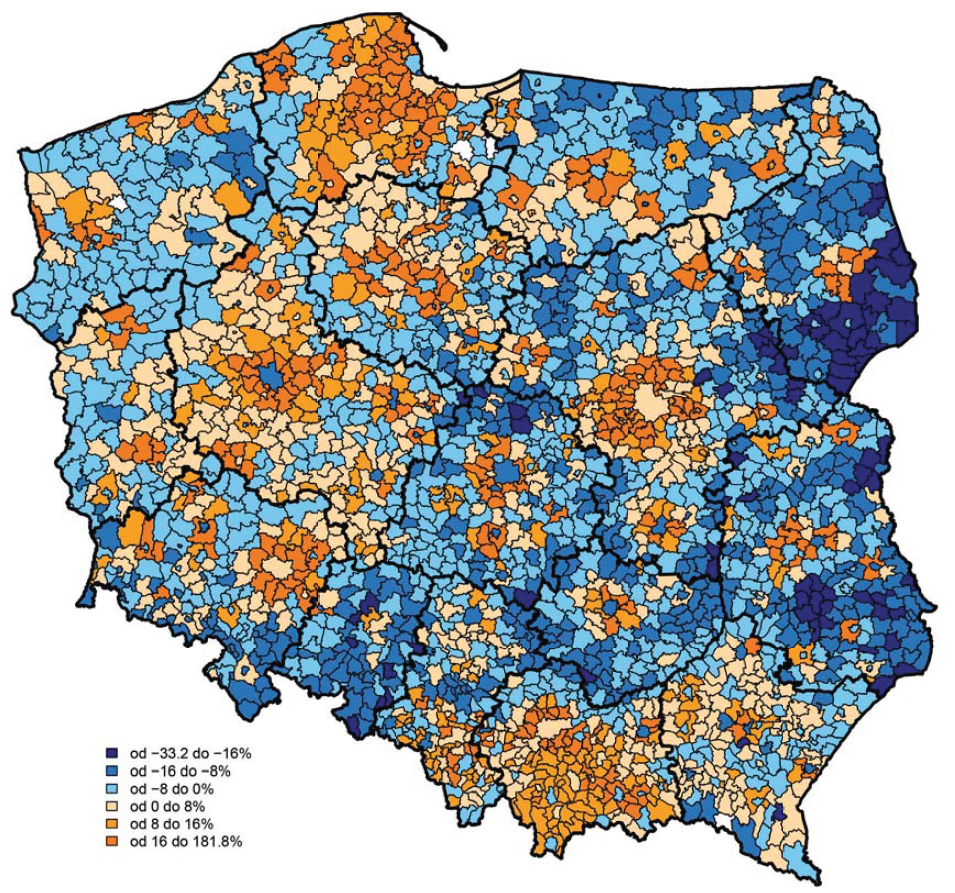In the face of increasing tourism, small towns are losing their local character, putting their future in question. However, the debate over the development of these localities goes beyond just attracting tourists, touching on important issues related to the daily lives of residents.
In my last text, I wrote about howtourism is eating away not only at large cities that are well-known throughout Europe and the world, but also at smaller ones. One example was Mikolajki, which is in winter torpor from October until May. In the comments under this material, I found a comment asking why A&B hates small cities. I was quite taken aback by this, as it seemed clear to me that I was writing this article to question the direction of certain towns, not to criticize their existence in general.
Tourism vs. small towns
Towns in the process of tourism are losing their regionality, their local identity. Criticizing this phenomenon and allowing myself to come up with visions of places that seek the golden mean between inviting visitors to get to know the place and keeping it attractive to locals so that they don't have to move away due to the lack of career alternatives doesn't seem to me to be such a controversial idea. Moreover, it is perfectly clear from the data - localities that are heavily depopulated are not considered worth staying in.
Source: MRiPS based on CSO data
Theattractiveness of a city can be evaluated in many ways, but most often we decide to move to where living conditions will be comfortable for us. So we need to have a job that guarantees steady employment, an apartment or house that doesn't siphon off too much of our earnings, facilities for services, entertainment tailored to our needs, and a network of friends. Many people in power in small or medium-sized towns are aware of this. The first thing that could change the status quo is an examination of conscience. A broad look at what is going on in our municipality, what the population structure looks like, urbanization, the number of registrations, for example - these are data that really say a lot. True, municipalities were obliged to create development strategies, but a lot of them were done poorly. Sometimes there were even documents whose content was literally pasted from other municipalities. How, then, to talk about the sense of change here?
Strategies must invite
Let's assume, however, that we are in a municipality that has actually stuck to such a document. What next? Most often , however, there is a lack of resources to fulfill the vision of such a place. Therefore, the next thing that should happen to make it more attractive, or to make adjustments to the direction of development, is funding. It is necessary to centrally assist budgets. This, however, should not go unchecked, and for strictly set goals, based on locally collected and updated data.
Segments that aim to encourage people to stay in the locality, or even invite them to move, should get help. More and more people are giving up on the vision of big-city, fast-paced, dynamic life, finding more success in corporate glass office buildings. The spirit of slow living can be quietly blended right into small-town life. Provided that the city encourages it.
Many cities compete with each other, but this competition often boils down to who advertises more loudly in the tourist industry. Meanwhile, it is the ordinary residents who should be taken care of. About their convenience of everyday life, their pleasure of staying. At the same time, locality should not be a blowout, artificially directed to the tourist to sell a plastic figure. Therefore, in this whole process there should also be interest in local foundations, associations, thanks to which many traditions continue to have a raison d'être. In many cases, these are also jobs (but often, unfortunately, voluntary).
Support in the spirit of localism
The inclusion of the city in a network of partner cities or organizations bringing together cities with similar directions of development also works to its advantage. A good example of this is, for example ,Cittaslow, an organization founded in Italy and inspired by the slow food movement. Cittaslow's goals include improving the quality of life in cities by slowing down its overall pace, especially in terms of a city's use of space and the flow of life and traffic within them. The soft infrastructure that such organizations create serves to energize residents, a modern-day grassroots effort.
Sustainability is a buzzword that we all seem to have grown weary of, it has been trumpeted and devalued. However, if one were to think a little harder about this slogan, cutting off the burden of shoving it everywhere one can, it might turn out that it is precisely the tourist towns that need sustainability. Perhaps right now, when it's not too late.
Magdalena Milert















